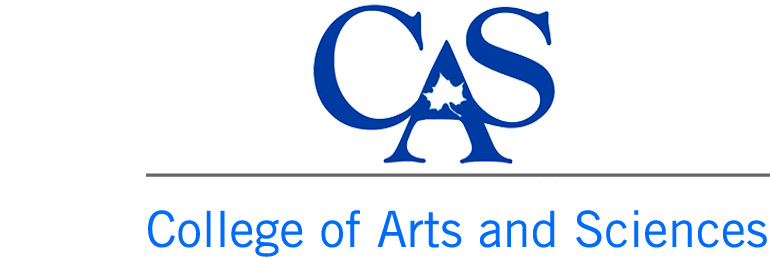You are here
Steding, Catherine

CATHERINE E. STEDING
Assistant Professor
Ph.D., Indiana University at IUPUI (IU School of Medicine)
Phone: 812-237-8553
Email: Catherine.Steding@indstate.edu
Office: Science Building 217
Steding Laboratory
In order to be capable of generating new, innovative therapeutics against cancer, a greater understanding of cell behavior is essential. My laboratory remains committed to combatting cancer via translational investigations of therapeutic compounds as well as pre-translational investigations into the nature of cancer. Through pre-translational investigations into cellular interactions, gene expression, and cell signaling pathways, my laboratory seeks to identify key components of disease development, progression, metastasis, and chemoresistance.
Research Interests:
Tumor Immunology and the Tumor Microenvironment
Although significant strides have been made in understanding the complex interaction between tumor cells and their microenvironment, much remains to be defined. For example, the role of the Immune System and immune suppression in both cancer development and progression remains to be fully elucidated. Based on current clinical needs for new therapies, defining the links between the Tumor Microenvironment, the Immune System, and cancer progression remain of significant interest in both basic and translational research.
Of particular interest in my laboratory is the reciprocal relationship between cancer cells and other cells of the tumor microenvironment. In both breast cancer bone metastases and the various hematological malignancies, understanding the effects of malignant cells on the bone marrow and vice versa is essential to determining the role of the microenvironment in promoting cancer cell growth. Beyond these general goals, the specific interests of my laboratory include: defining the effects of cancer cells on both osteoclasts and osteoblasts, determining the role of telomerase in gene regulation, recruitment and expansion of hematological cells within the breast tumor microenvironment, and the activity of immune suppressing cells within both the bone and breast tumor microenvironments.
Chemoresistance and Cell Signaling
Chemoresistance stands as the single greatest hurtle to achieving long-term therapeutic efficacy. Nearly every compound and therapeutic tested to date has shown signs of chemoresistance. This fact of therapeutic intervention results in significantly reduced overall effectiveness of many compounds and limited options in advanced, refractory disease. The complex interplay between cancer cells and the immune system further complicates this already overwhelming situation. Through the use of innovative cell lines generated at Indiana State University, my laboratory seeks to obtain a greater understanding of cancer cell behavior and communication with an emphasis on the pathways and activities that lead to the acquisition or development of resistance.
Students in Research
With now more than 15 years of research experience, my research emphasizes the importance of education and provides unique experiences for students at all levels. Addressing critical questions about cancer cell growth and behavior is a perfect means to achieve training and guidance in a wide range of techniques and skills. The laboratory remains committed to answering fundamental questions about cancer while at the same time exploring the consequences of current research practices and techniques. Each experience is uniquely tailored to the skill sets and desires of the student. Please contact me via email if you are interested in learning more about research experiences in the laboratory.
Selected Publications and Abstracts/Presentations:
Brown N, Cleghorn K, Muse D, and Steding CE. Critically Evaluating In Vitro Conditions:Implications in Combating Cancer Derived from Long-Term Treatment with Commonly Used Compounds. Annual Biomedical Research Conference for Minority Students (ABRCMS). Anaheim, California. November 13-16, 2019.
VanWanzeele M and Steding CE. Defining Critical Differences between Epigallocatechin gallate and Macha Tea as Therapeutic or Dietary Supplements in Cancer. Oral Presentation at the Crossroads Mideast Honors Association Annual Meeting. Muncie, Indiana. April 5-7, 2019.
VanWanzeele M and Steding CE. Defining Critical Differences between Epigallocatechin gallate and Macha Tea as Therapeutic or Dietary Supplements in Cancer. Indiana Academy of Science. Indianapolis, Indiana. March 30, 2019.
Brown N+, Cleghorn K+, Muse D, and Steding CE. The Essential In Vitro World of Cancer Cells. Indiana Academy of Science. Indianapolis, Indiana. March 30, 2019. (Presented by Nykara Brown) +contributed equally to the work
Myers N, Mikolaj P, and Steding CE. 2018. Competing Policy Windows in Biotechnology: The FDA, the 21st Century Cures Act, and Laboratory Developed Tests. Review of Policy Research. 35, (1): 89-119. (Impact Factor 1.167)
Osmon M, Williams K, Voges M, and Steding CE. Evaluation of chemotherapeutic resistant cell lines. National Conference on Undergraduate Research (NCUR). April, 2017.
Williams K, Osmon M, Voges M, and Steding CE. Evaluation of chemotherapeutic resistant cell lines. Indiana Academy of Sciences Annual Conference. April, 2017.
Ghosh SK, Johnson SM, Steding CE, and Fitch R. Adjuvanticity and Chemo-therapeutic Potential of Novel Phytol-derived Immunoadjuvants. International Congress of Immunology. August 21-26, 2016.
Steding CE. 2016. Creating chemotherapeutic-resistant breast cancer cell lines: advances and future perspectives. Future Oncolology 12(12), 1517-1527. (Impact Factor: 2.129)
Williams K and Steding CE. Creating a chemotherapeutic resistant cell line. National Conference on Undergraduate Research (NCUR). April, 2016
Sprouse AA, Steding CE, Sloan R, Herbert B-S. 2012. Pharmaceutical regulation of telomerase. Journal of Cellular & Molecular Medicine 16, 1-7. (Impact Factor: 4.753)
Steding CE, Wu S, Zhang YP, Jeng MH, Elzey BD, Kao C. 2011. The role of interleukin-12 on modulating myeloid-derived suppressor cells, increasing overall survival, and reducing metastasis. Immunology. 133, 221-238. (Impact Factor: 3.321)
Koziel JE, Fox MJ, Steding CE, Sprouse AA, Herbert B-S. 2011. Medical genetics and epigenetics of telomerase. Journal of Cellular & Molecular Medicine 15 (3): 457-467.(Impact Factor: 4.125)
Mellon MJ, Bae KH, Steding CE, Jimenez JA, Kao C, Gardner TA. 2008. Suppression of renal cell carcinoma growth and metastasis with sustained antiangiogenic gene therapy.Human Gene Therapy. 19:487-495. (Impact Factor: 4.104)
Denver DR, Feinberg S, Steding C, Durbin M, and Lynch M. 2006. The relative roles of three DNA repair pathways in preventing Caenorhabditis elegans mutation accumulation.Genetics. 174: 5765.
Baer CF, Shaw F, Steding C, Baumgartner M, Hawkins A, Houppert A, Mason N, Reed M,
Simonelic K, Woodard W, and Lynch M. 2005. Comparative evolutionary genetics of spontaneous mutations affecting fitness in rhabditid nematodes. Proceedings of the National Academy of Sciences, USA, 102:5785-5790.
